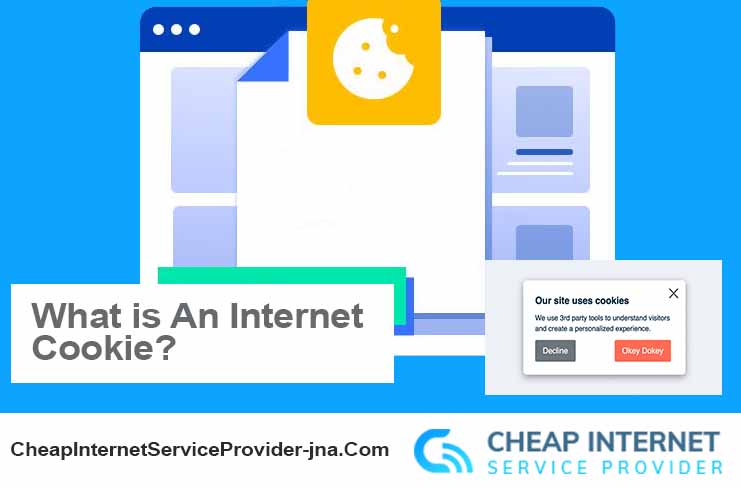What is An Internet Cookie?

What Are Internet Cookies?
Internet Cookies are text files with small pieces of data like a username and password that are used to identify your computer as you use a computer network. Specific cookies known as HTTP cookies are used to identify specific users and improve your web browsing experience.
Data stored in a cookie is created by the server upon your connection. This data is labeled with an ID unique to you and your computer.
When the cookie is exchanged between your computer and the network server, the server reads the ID and knows what information to specifically serve to you.
Cookies deliver websites tailored to the interests of a user. A cookie does this by carrying information from one site over to the next.
For example, if you search for vacation destinations and later see an advertisement for that destination on the next website you view, it means your computer has stored a cookie to transmit that information.
Also read : Best Essential Applications for Travelers
Check for browser cookies
You can check whether your browser allows cookies. View your browser’s settings to disable, enable, or delete cookies that may have been stored. Internet cookies act as memories for your browser.
Some people view them as helpful, while others see them as a violation of privacy. The good thing about cookies? You can easily disable them if they make you uncomfortable.
How do internet cookies work?
Cookies contain pairs of data that can be read by the server you use. The data is sent and retrieved to personalize a new website for you.
If you enter your name or address at one website, there’s a chance your browser has saved it to be available for future logins. If you choose to disable cookies, you might be prompted to re-enter all your information, such as passwords, each time you visit a new webpage.
Cookies are intended to be used in three main ways:
- Session management. For example, cookies let websites recognize users and recall their individual login information and preferences, such as sports news versus politics.
- Personalization. Customized advertising is the main way cookies are used to personalize your sessions. You may view certain items or parts of a site, and cookies use this data to help build targeted ads that you might enjoy.
- Tracking. Shopping sites use cookies to track items users previously viewed, allowing the sites to suggest other goods they might like and keep items in shopping carts while they continue shopping.
Also Read : Internet Resource That Makes You Productive While working from home
Are cookies good or bad?
Cookies are generally not malicious and are not considered a type of computer virus. They are not self-executing and cannot make copies of themselves, unlike a computer worm.
However, they are used to store a user’s preferences. If you’re okay with your information being stored on your computer, cookies can very helpful to your browsing experience.
United States (US) Cookie Laws
In the United States, while there is no one all-encompassing federal cookie law, there are several internet privacy rules that apply to corporate cookie usage, including:
- The Computer Fraud and Abuse Act of 1984
- The Americans with Disabilities Act
- The Children’s Internet Protection Act of 2001 (updated 2013)
- The Children’s Online Privacy Protection Act (COPPA)
Furthermore, the California Consumer Privacy Act (CCPA) also applies to cookie usage, as the act serves to safeguard the personal data of internet users in a similar manner as the GDPR.
Related Articles:
Boost Satellite Internet Signal With Simple Steps
Ways to Make Your Smartphone More Secure and Protect from Hackers
Related Posts
 Technology
Technology
15 Intriguing Facts About the Internet You’ll Love
15 intriguing facts about the internet, from submarine cables to data usage trends and speed insights that impact your daily connection.
 Safety
Safety
Always Check the Website You Visit
Learn how to check if a website is safe before entering personal information. Protect yourself from scams, phishing, and malicious websites.
 Safety
Safety
How to Secure Video Calls and Prevent Hacks
Learn how to secure video calls, prevent meeting hacks, enable MFA, protect accounts, and safeguard remote meetings with practical security best practices.
 Internet Bundles
Technology
Internet Bundles
Technology
Is AT&T Customer Service Good? Support Review
Is AT&T customer service good? Explore support options, phone numbers, live chat access, and real performance insights for residential and business users.
 Internet Bundles
Internet Bundles
Top Fiber Internet Providers in the U.S. Ranked by Speed
Discover the top fiber internet providers in the US, their speeds, pricing, and customer satisfaction ratings. Find the best plan for fast, reliable, and uninterrupted internet.

